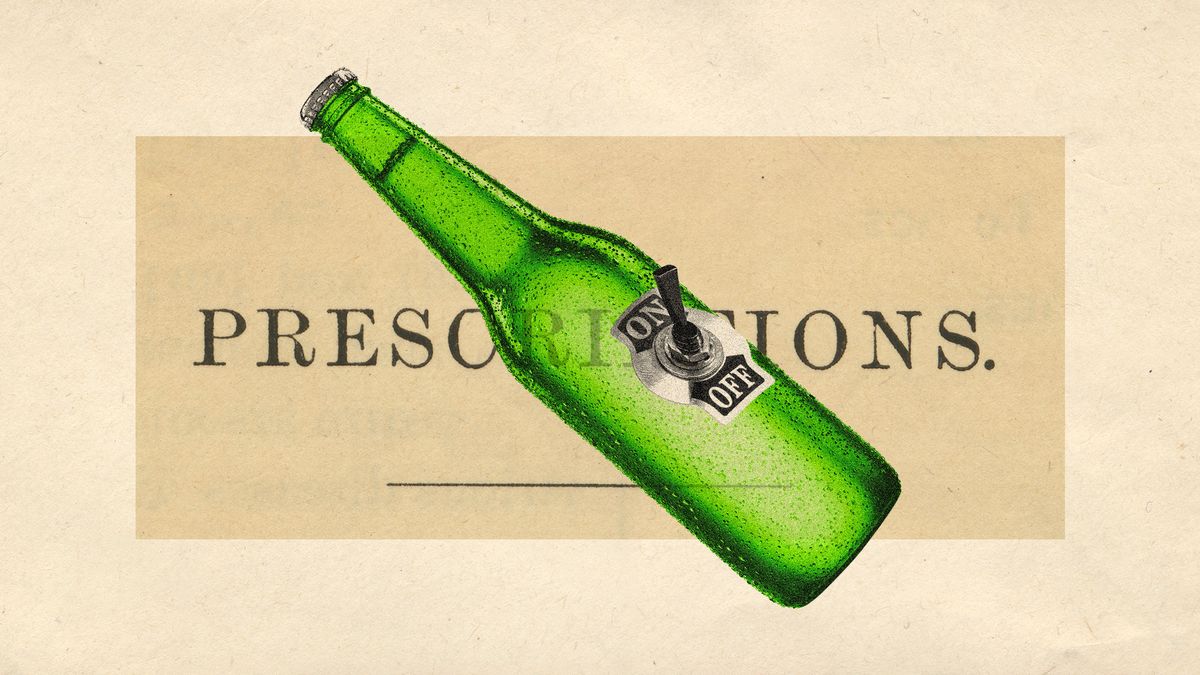Unveiling Naltrexone: The Breakthrough Treatment for Alcoholism Recovery
Naltrexone is reshaping the landscape of alcohol addiction treatment, offering new hope for recovery. As a medication that has gained significant attention in recent years, it plays a crucial role in supporting individuals battling alcohol use disorder (AUD). This article delves into the efficacy, benefits, and underlying science of Naltrexone, illustrating how it can transform the journey to recovery.
Understanding Alcohol Use Disorder
Alcohol use disorder is a complex condition characterized by an individual’s inability to control their drinking despite the negative consequences. According to the National Institute on Alcohol Abuse and Alcoholism (NIAAA), approximately 14.5 million adults in the United States suffer from AUD. The ramifications of this disorder extend beyond the individual, affecting families, communities, and healthcare systems.
Traditional treatment modalities for alcoholism often include therapy, support groups, and lifestyle changes. While these approaches are essential, many individuals find it challenging to maintain sobriety long-term. This is where Naltrexone comes into play, offering a pharmacological approach to enhance recovery.
What is Naltrexone?
Naltrexone is an opioid receptor antagonist, primarily used to manage alcohol dependence and opioid addiction. It works by blocking the euphoric effects of alcohol, thus reducing the cravings associated with drinking. By inhibiting the brain’s reward system, Naltrexone helps individuals resist the urge to drink, making it a valuable tool in the recovery process.
The Science Behind Naltrexone
The mechanism of action of Naltrexone is fascinating. When alcohol is consumed, it activates the brain’s reward centers, releasing dopamine and creating pleasurable feelings. Naltrexone disrupts this cycle by binding to opioid receptors, effectively reducing the reinforcing effects of alcohol. This pharmacological interference aids in diminishing cravings and the likelihood of relapse.
Research has shown that individuals who incorporate Naltrexone into their treatment plans experience a higher rate of abstinence and reduced alcohol consumption compared to those who do not use the medication. A prominent study published in the journal Alcoholism: Clinical and Experimental Research highlighted that participants taking Naltrexone were more likely to remain abstinent over a 12-week period than their counterparts receiving a placebo.
Benefits of Naltrexone in Alcoholism Recovery
Utilizing Naltrexone as part of a comprehensive treatment strategy offers several notable benefits:
- Reduced Cravings: One of the most significant advantages of Naltrexone is its ability to diminish cravings for alcohol, allowing individuals to make more rational decisions regarding their drinking behavior.
- Improved Retention in Treatment: Patients on Naltrexone are often more likely to stay engaged in their treatment programs, which is critical for long-term recovery.
- Flexible Administration: Naltrexone can be taken as a daily oral tablet or as a monthly injection, providing options that can fit various lifestyles and preferences.
- Support for Behavioral Therapies: While Naltrexone is effective on its own, it works best when combined with counseling and support groups, enhancing the overall treatment experience.
Potential Side Effects of Naltrexone
As with any medication, Naltrexone is not without its side effects. While many individuals tolerate it well, some may experience:
- Gastrointestinal issues (nausea, vomiting, diarrhea)
- Fatigue
- Headaches
- Insomnia
It’s crucial for individuals considering Naltrexone to have a thorough discussion with their healthcare provider about the potential benefits and risks. For those with a history of opioid use, caution is advised, as Naltrexone can precipitate withdrawal symptoms.
Integrating Naltrexone into Recovery Plans
For individuals seeking recovery from alcoholism, integrating Naltrexone into a comprehensive treatment plan can be a game-changer. Here are some essential steps to consider:
- Consult with a Healthcare Provider: A medical professional can assess the individual’s specific situation, determine if Naltrexone is appropriate, and monitor progress.
- Combine with Counseling: Behavioral therapies, such as cognitive-behavioral therapy (CBT) or motivational enhancement therapy, can enhance the effectiveness of Naltrexone.
- Participate in Support Groups: Engaging with others in recovery, such as Alcoholics Anonymous (AA), can provide invaluable support and encouragement.
- Follow a Healthy Lifestyle: A balanced diet, regular exercise, and mindfulness practices can support overall well-being and recovery efforts.
Success Stories: Real-Life Transformations
The impact of Naltrexone on individuals struggling with alcohol addiction is profound, with many sharing their success stories. For instance, Jane, a 35-year-old mother of two, struggled with alcohol for over a decade. After starting Naltrexone, she noticed a significant reduction in her cravings and was able to engage more fully with her family and work.
Similarly, Mark, a 42-year-old professional, described how Naltrexone helped him regain control over his life. “I used to think I couldn’t live without alcohol. Now, I feel empowered to make choices that align with my values and goals,” he shared.
The Future of Alcoholism Treatment
The integration of medications like Naltrexone into treatment protocols signifies a promising shift in how alcoholism is approached. As research continues to evolve, it is likely that more innovative strategies will emerge, combining pharmacological treatments with holistic approaches. This multifaceted strategy may pave the way for a future where recovery from alcohol use disorder is more attainable for everyone.
Conclusion
Naltrexone stands out as a transformative treatment for individuals battling alcoholism, providing a scientifically-backed option that can significantly enhance recovery efforts. With its ability to reduce cravings and support behavioral therapies, Naltrexone is reshaping the narrative around alcohol addiction treatment. By embracing this breakthrough, individuals can find renewed hope and embark on a path toward lasting recovery.
For those grappling with alcohol use disorder, the journey may be daunting, but Naltrexone offers a beacon of hope, illustrating that recovery is not only possible but achievable. The road to sobriety may be challenging, but with the right support and resources, a brighter future awaits.
See more WebMD Network



